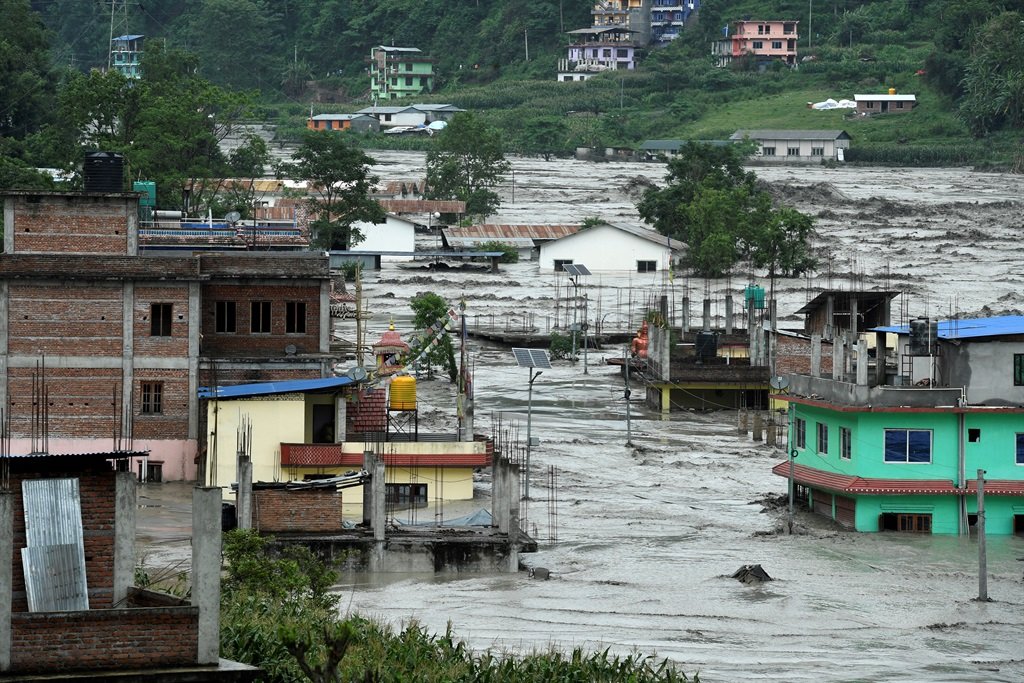First, earthquakes. So corona. And now flooding. Life in Helambu takes its toll. And its victims. Official information says one fatality and at least seven missing.
On the night between Tuesday and Wednesday, torrents of water and tons of mud surged down the Melamchi River in the lower Helambu area. Over a stretch of almost 30 kilometers, the swollen river has taken eight settlements, two major bridges and six suspension bridges with it.

Over 150 houses are flooded, shops, fish farms and schools are in danger of collapsing. Electricity is out, huge amounts of food have been destroyed and large parts of the area can only be reached by helicopter. Hundreds of people have had to seek refuge in higher ground.

Monsoon rains mean flooding and mudslides across mountainous Nepal. Also in Helambu. But according to experts interviewed by the Kathmandu Post, there are signs that it’s no longer just heavy rainfall that causes flooding and mudslides.
Rainfall measurements for Monday and Tuesday did not trigger any danger signals, so explanations for the massive mudflows have multiple sources, according to the Kathmandu Post. The region was hardest hit by the massive earthquake in April 2015. Mountain slopes have been ‘loosened’, so to speak. It no longer takes so much rain to trigger landslides.
The amount of soil, rocks and trees that have floated with the mudslide suggests that up the Melamchi River there has been a multitude of small dams, possibly the result of earthquakes and earlier smaller mudslides. Once one dam collapses, all the others further down the river go with it and all hell breaks loose.

According to initial reports from Just Nepal Foundation, CICED’s partner in Helambu, there are no casualties among JNF staff and volunteers, nor among those involved in our joint projects. But all the food and equipment that we funded with the COVID-19 donation last week has been washed away. At the same time, some of the young people have suffered material losses in agriculture, fish farming and shopkeeping. How much we don’t know yet.
What we do know, however, is that there is a need to deliver food and drink to the most vulnerable. That new equipment and additional help for COVID-19 protection is urgent. That young people who have lost or damaged their earning potential need a helping hand to give them the confidence to stay in the area and not run off to the Gulf States again in search of work.
Therefore, CICED has made another intervention in our savings and transfers DKK 50,000 to Just Nepal Foundation so that JNF can start helping the most vulnerable and the youth and their families right now.
Contributions can be made to
MobilePay: 54 39 10
Merker Andelskasse: 8401-1148263
Mark payment: JNF
All contributions are transferred in full.


